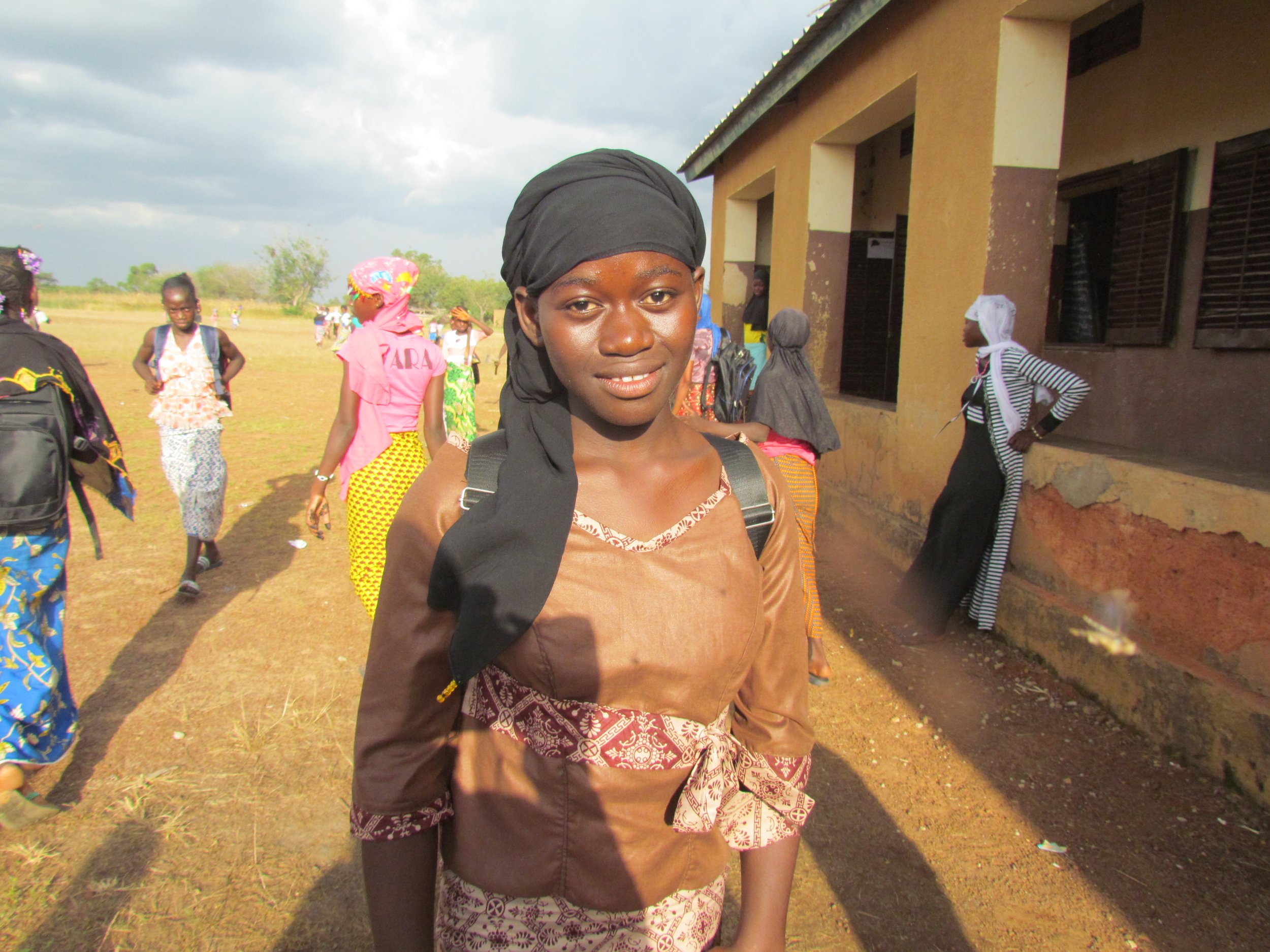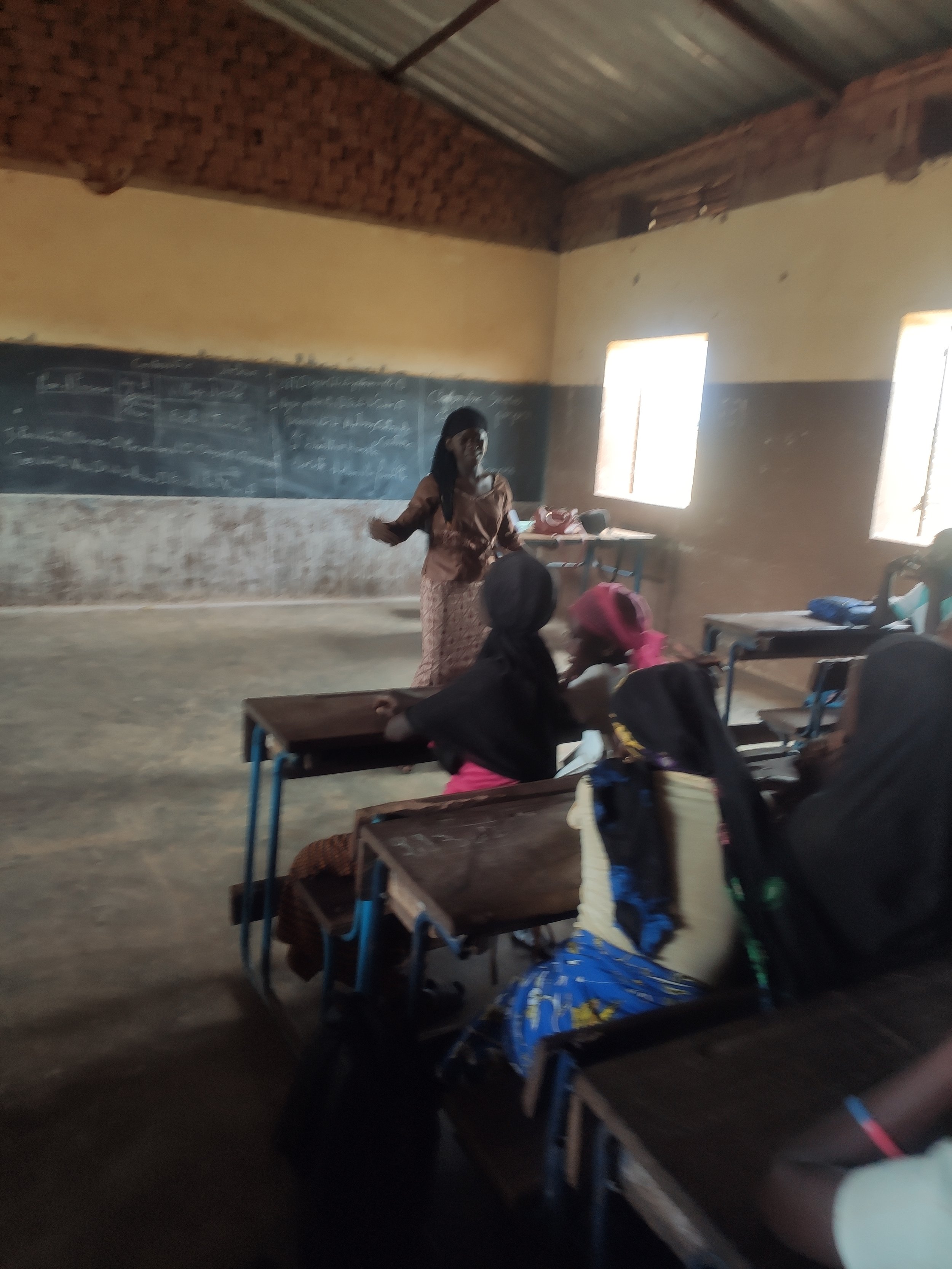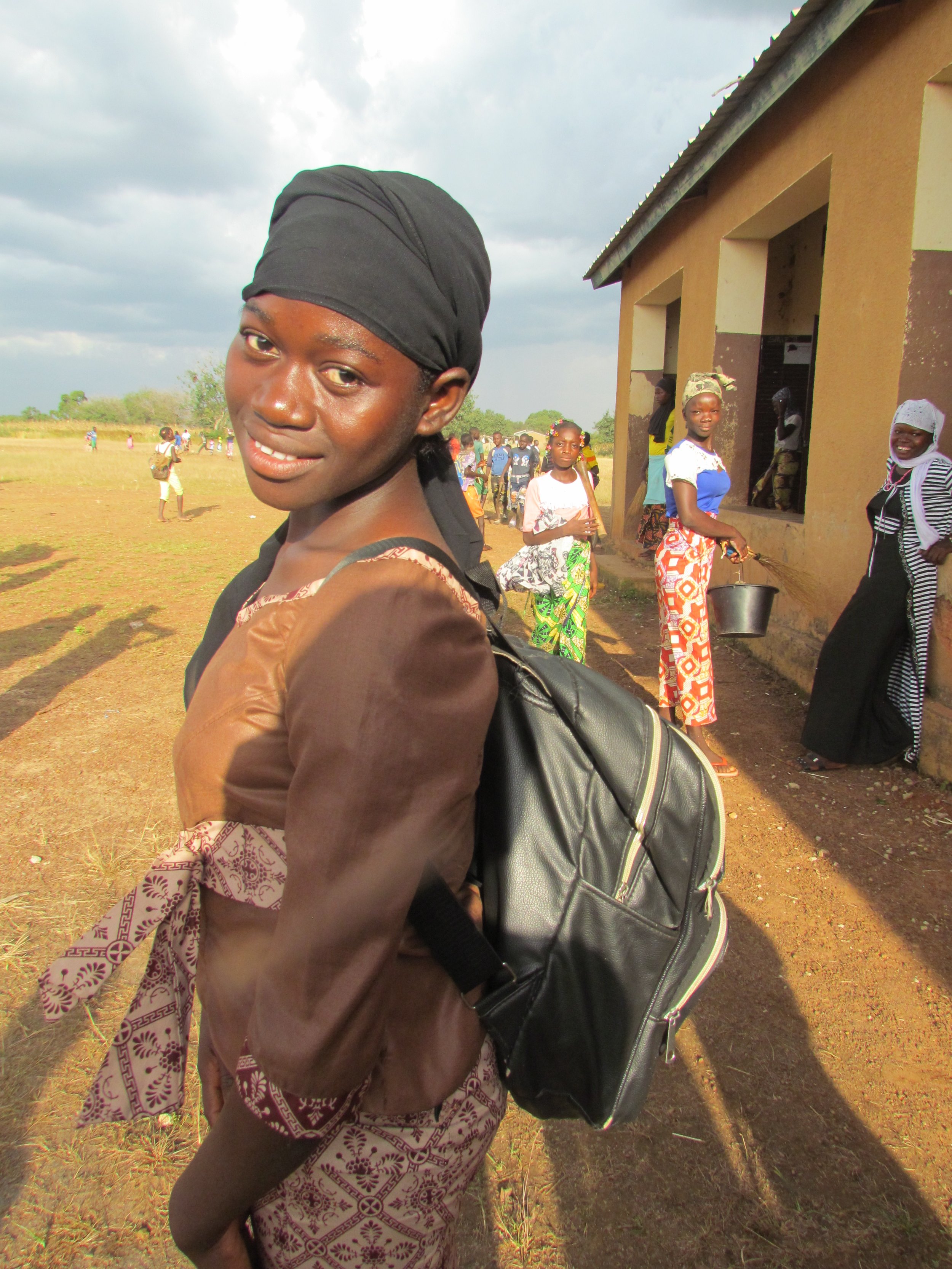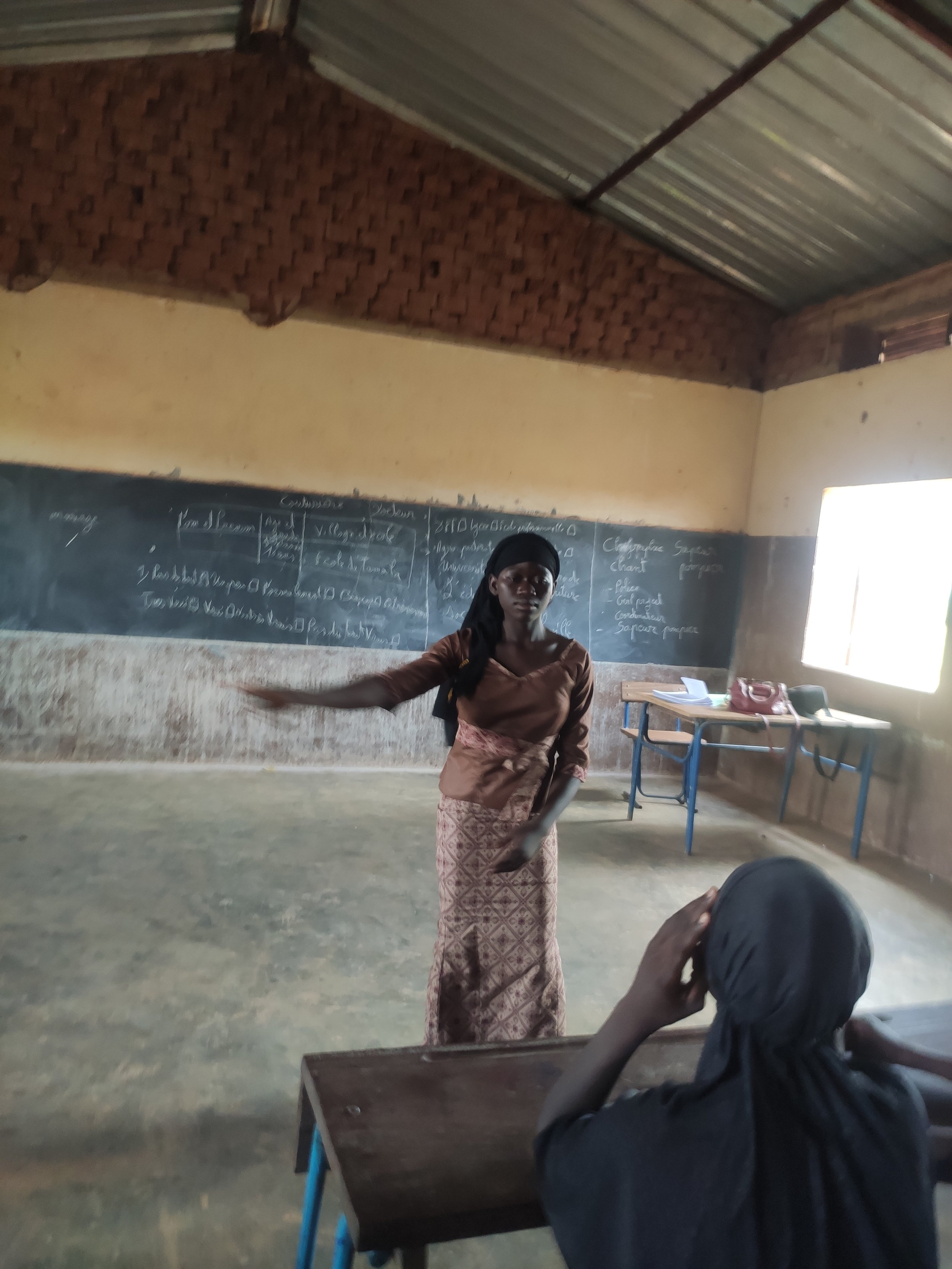n Mali as in other African countries, historically few women went to school. Instead, many women were married at an early age and men did not consider women them when making certain core decisions in the society. But today this trend is changing in many regions of Mali and elsewhere. For our work at Mali Rising, we see this change happening in our school committees — the group of local people in charge of managing each school in Mali. I recently met a woman who exemplifies this change — Aicha Kone. Ms. Kone is a female leader who joined the school management committee of the Neways Academy in the village of Touban to champion the cause of girls.
What a Difference a School Makes
At Mali Rising, our Girls’ Project does a lot to get girls into school and help them succeed there – from tutoring to soccer matches to school fee subsidies. However, sometimes we are reminded that even the basic act of building a school literally opens doors to girls in search of an education. I was reminded of this recently during a discussion with a mother of one of our students.
Small Investments = Big Return for Girls' Education
Boys Explore Education as a Human Right
In Mali, girls’ education is very challenging matter especially in rural areas. Although girls are often very interested in education, many of those around them may resist the idea. A girl’s parents or even her own brothers may not be supportive of the girl’s wishes to stay in school. That’s why Mali Rising’s work to help girls’ education can’t focus only on the girls – we must reach the parents and boys as well.
Strong Woman Scholarships Give Girls Hope
Children living in extreme poverty face many obstacles to their education, but girls in this situation face even more hurdles because they are victims of inequalities and suffer discrimination throughout their educational journey. Mali Rising helps girls get over those hurdles using many strategies, including Inspiration Scholarships for our outstanding graduates. This year, eight girls from current Girls’ Project villages benefited from a scholarship. Read about two of those girls’ stories…
Educating Boys About Educating Girls
By Merritt Frey, Executive Director
Because female students in Mali face special barriers, we have a robust Girls’ Project to help support their special needs. But research shows improving girls’ access to education takes action from the whole community…not just the girls. So, part of our Girls’ Project work focuses on engaging boys from our partner schools in discussion about gender issues and how they can actively support their fellow students who happen to be girls.
This work focuses largely on peer meetings where boys gather for facilitated discussions about human rights, girls’ education, and their role in knocking down obstacles for girls. The meetings are lively, with boys actively debating big ideas and sharing their ideas for building a more equal world.
In November, we hosted these discussions in three of our partner villages — Diorila, Sebela, and Zambougou. In each case, 40 to 60 boys came out to learn and share their own thoughts. Adama Kone, the Mali Rising staff person who leads these discussions, noted how much fun was had…and it wasn’t only because cake was provided!
“These young men can be allies for girls in their classroom today, and in the future they can speak up for women in their families and in Mali as a whole. In Mali, change starts with discussion and debate among the community, and these boys really engaged,” said Adama.
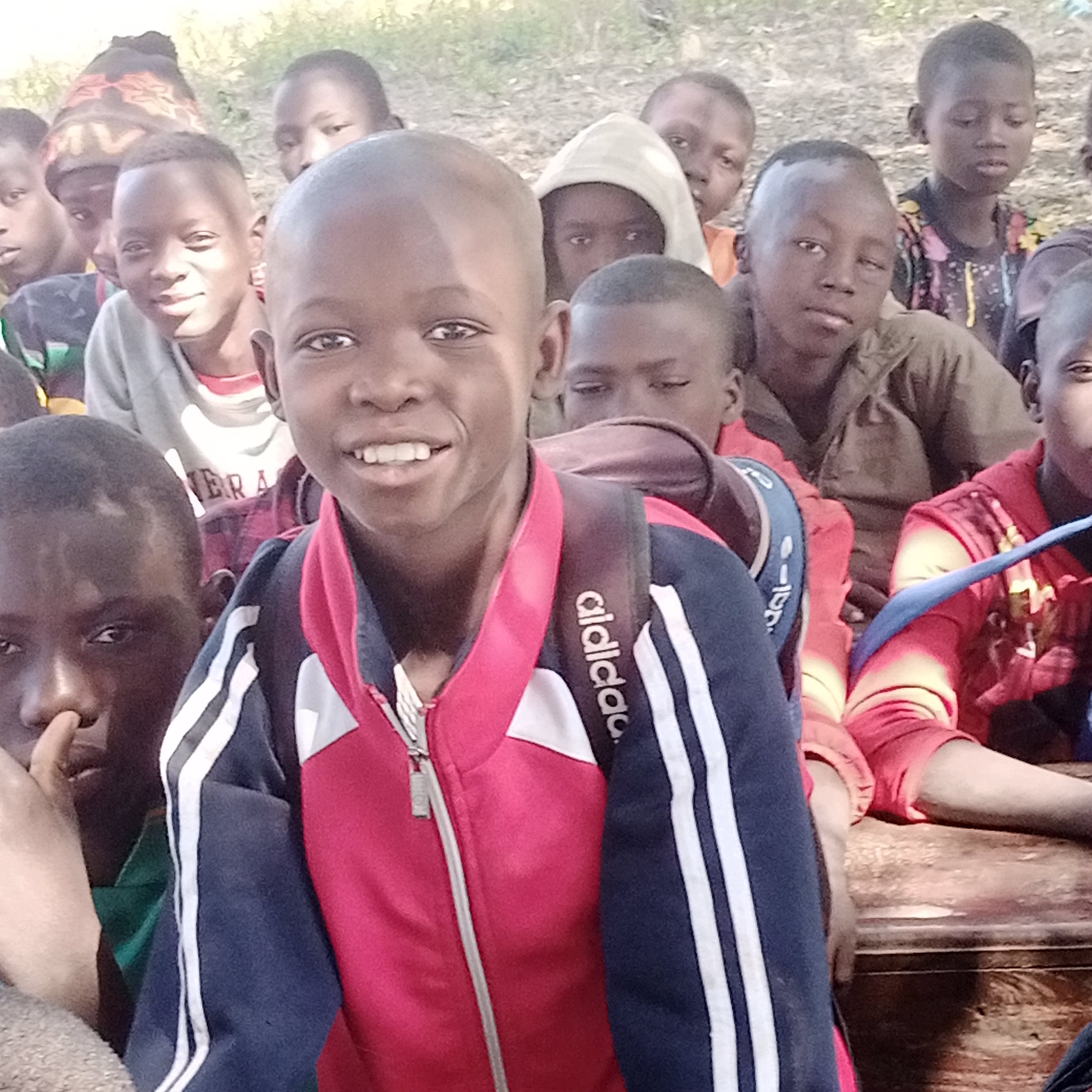
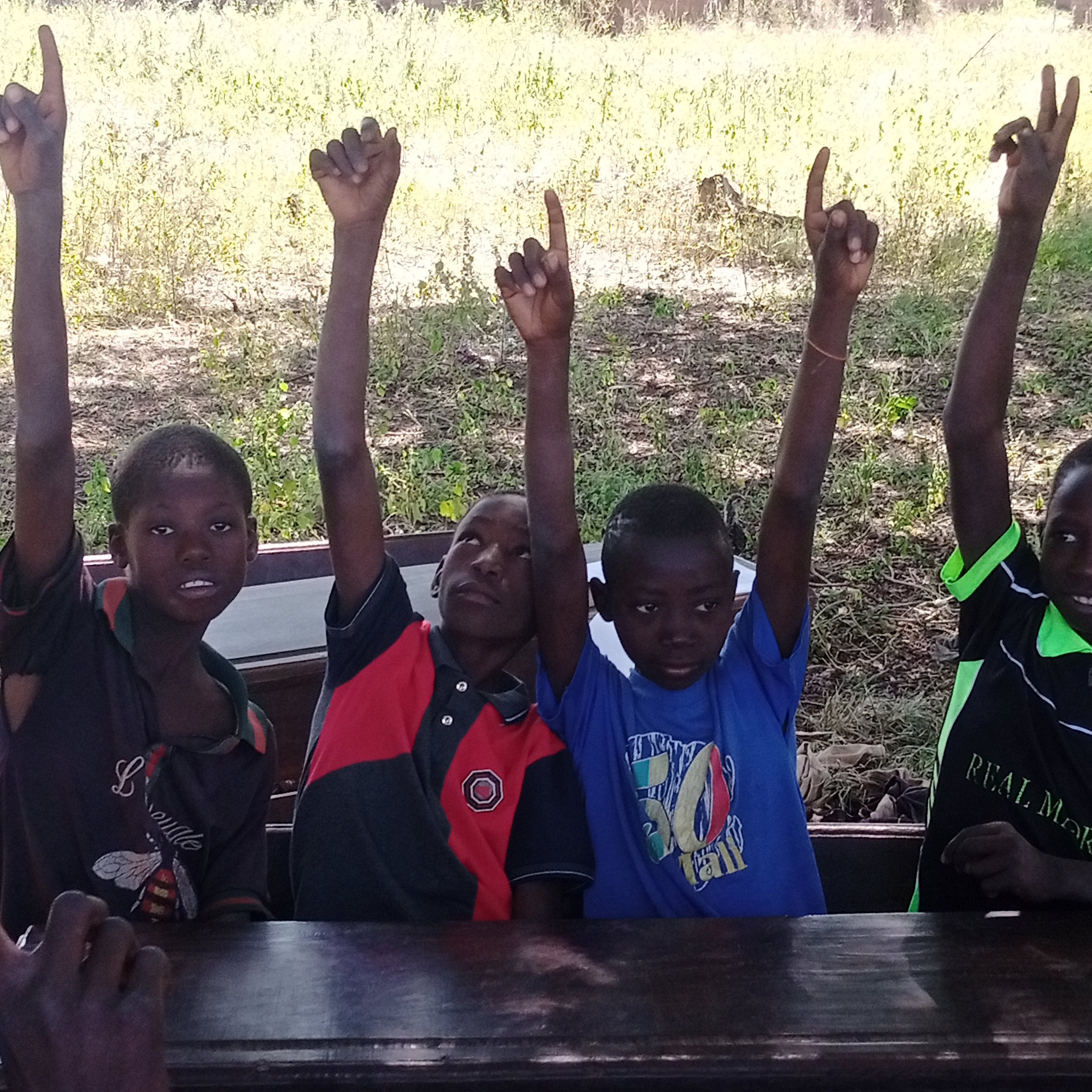
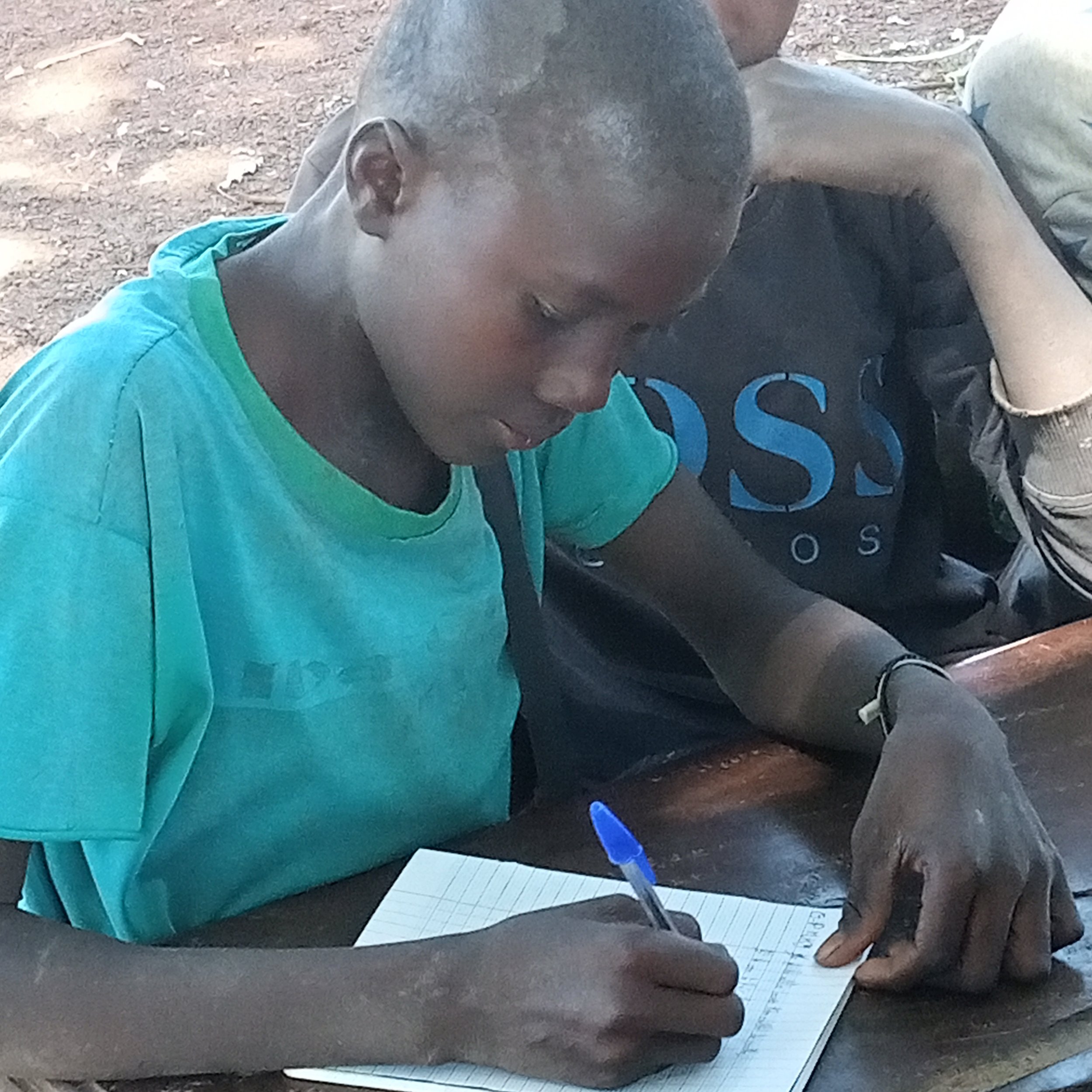
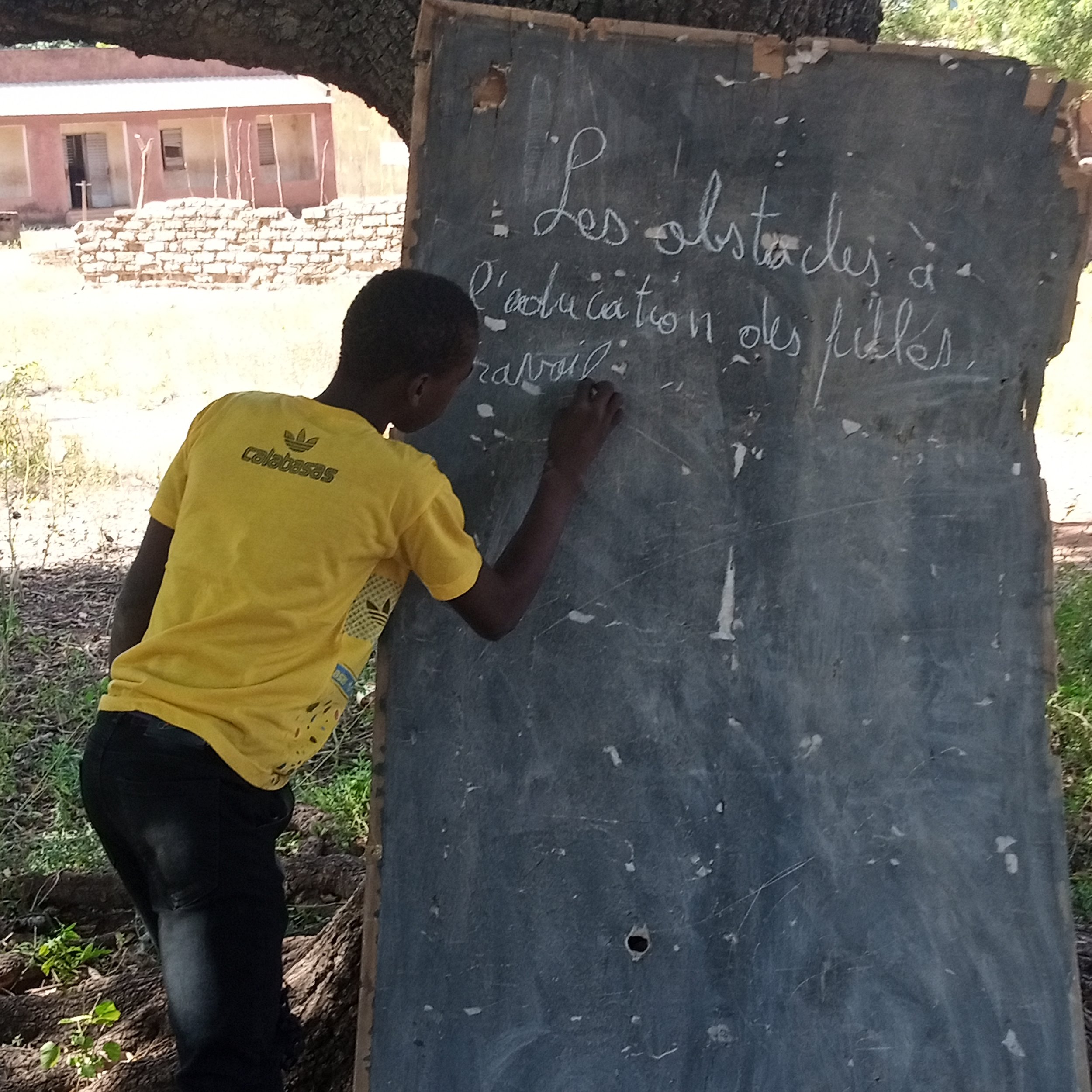
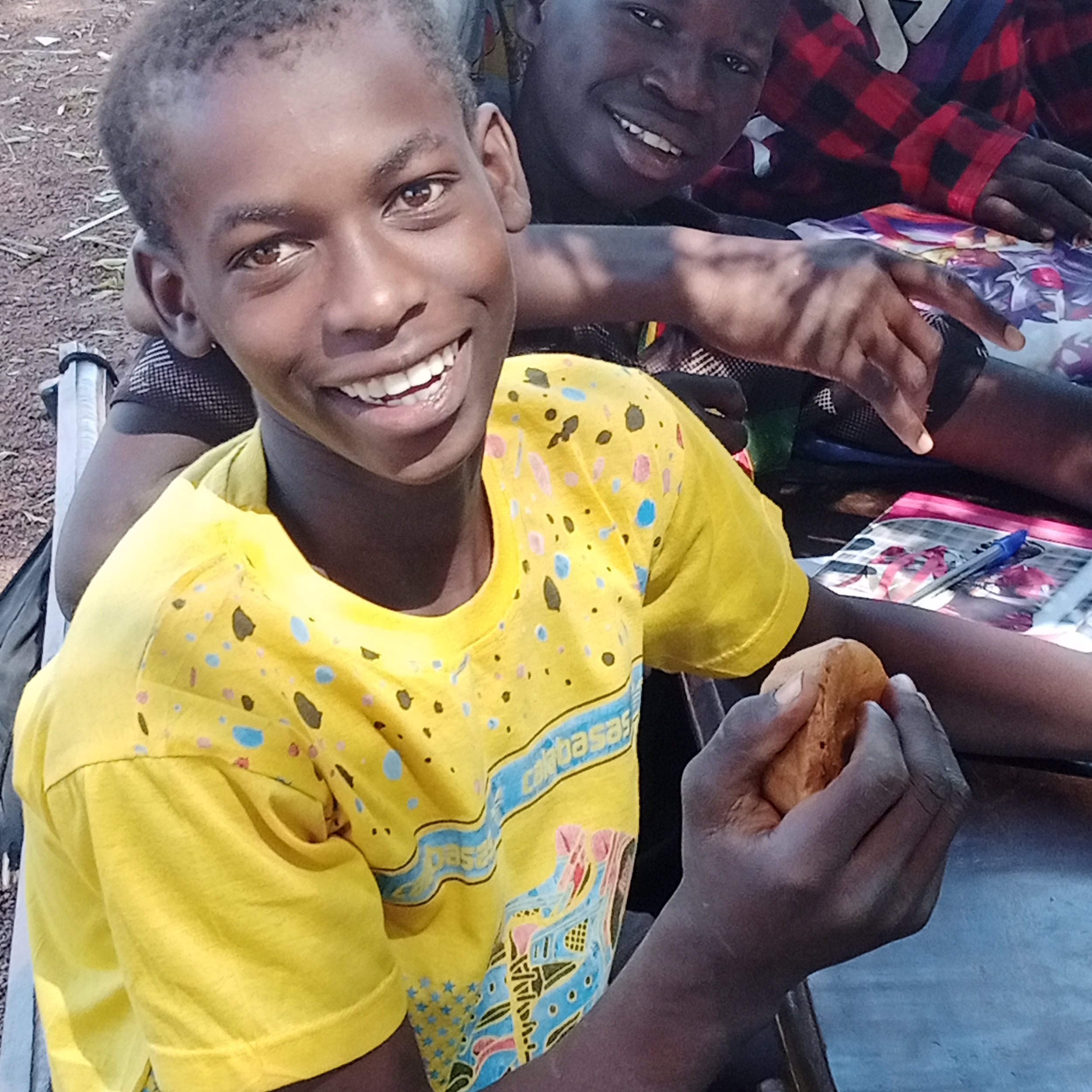
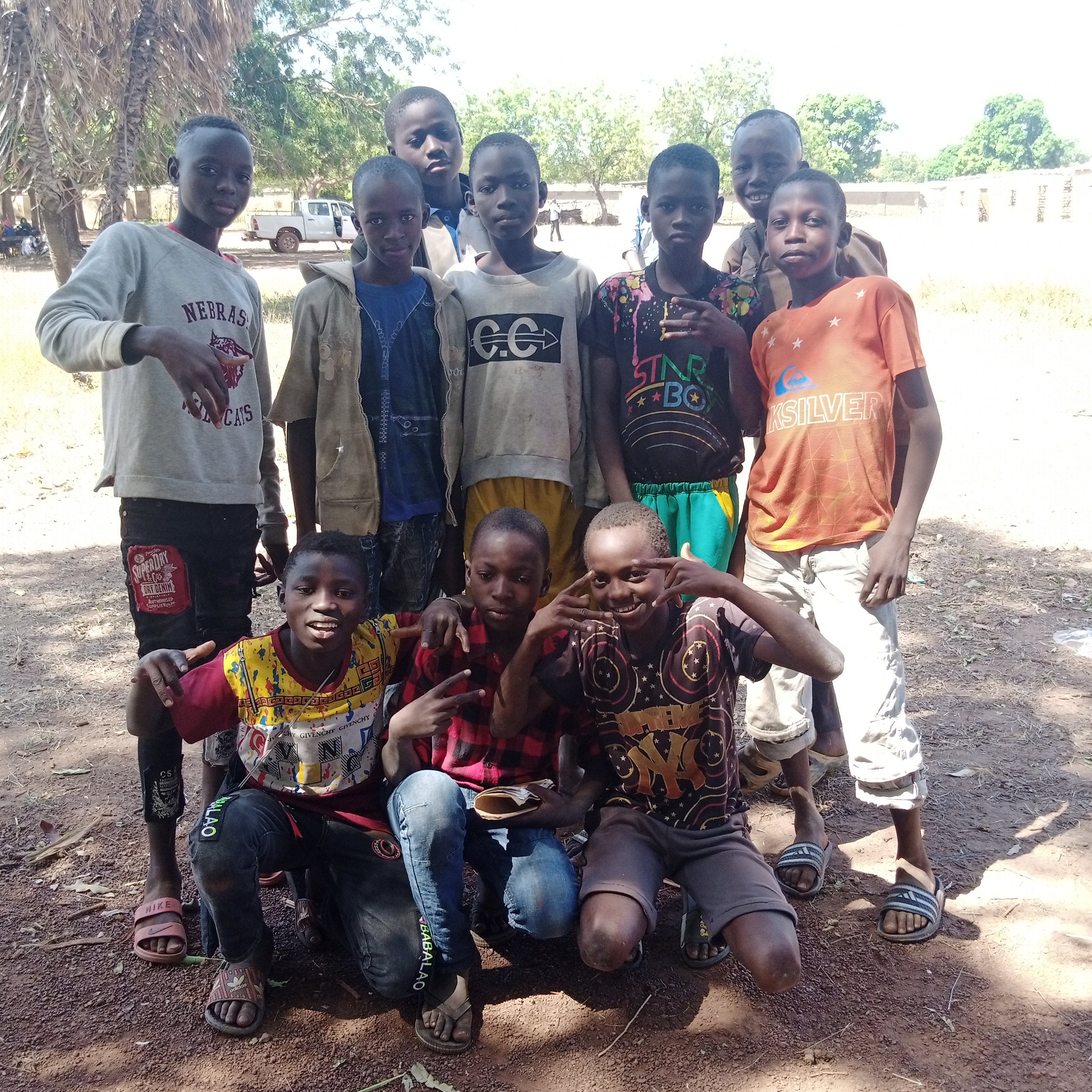
A Little Reward Goes a Long Way
Encouraging and recognizing good work done is an effective way to develop a taste for learning. Indeed, reward is an extrinsic motivator that prompts the student to improve certain behaviors, providing conditions that facilitate their motivation and learning.
It is in this context that the Girls’ Project gave gifts to 15 most outstanding girl students from last school year in the five villages of Girls’ Project -- Zambougou, Sebela, Dorila, Tamala and N'Tentou. This was done both to reward the girls for their hard work and to create competition among all the girls to study hard.
Sitan's Audacity Inspires Younger Girls
By Hindaty Traore, Girls Project Manager
Sitan is a very dynamic, motivated and determined young girl. She is 16 years old and is in 9th grade at Frances W. Burton Middle School. She comes from a very large farming family. She wants to do everything she can to lift her parents out of poverty. She wants to succeed but not alone.
This is why during our visit of the month to Tamala, Sitan offered us to advise her comrades finally that they be motivated from the beginning of the year to fight again this year so that they succeed all together. She thinks some girls still need a little encouragement to succeed especially those who have just arrived newly in Grade 7. Let us listen to her advice:
Hello sisters. Did you know that today's girls are the future of tomorrow's women, which is why it is essential that they are educated and learn to enforce their rights? I want us to develop this beautiful village of Tamala, which is for us and for our ancestors. No one will come to build this village for us. The best weapon to develop our village is education -- especially for girls.”
Girls' education is the precursor to lasting change. An educated girl can take charge of her life. Sensitized to the importance of education, she ensures that her children have a quality education and thus fights in turn against discrimination against girls, such as forced marriage, early pregnancy, child labor, and dropping out of school.
A girl who does not go to school will have a harder time making her voice heard. She will not be able to participate actively in the decision-making of the society in which she lives. The non-enrollment of girls locks them into poverty. Moreover, this situation is likely to continue in the next generation because an out-of-school girl will not understand the value of giving her children a quality education.
Education has brought me a lot. It taught me how to write my name, to know my family's phone numbers. Education is important because educating a girl is educating a family, a community, a village and an entire nation. Education allows you to know good manners in society, to have a lot of knowledge and you can have a job that you want to do but if you are not educated you will have nothing in life.
I learned a lot of things from the Girls’ Project like the menstrual cycle and period because I had not yet had my period.. I had advice to succeed, and I knew the existence of some languages in the world that I did not know. So I ask you my sisters to listen well to Hindaty, because she is there to help us succeed.
After my studies, I want to be a great seamstress to have money, sew clothes for me, my husband and Hindaty too. I hope you have understood my advice and my dream. I beg your pardon if I have offended you. Thank you."
After Sitan's intervention with the younger girls, we noticed the positive influence of the girls. This is why we will never stop thanking all the people who support the Girls' Project because thanks to them girls are able to express themselves in front of others, to study, to be bold, to have a specific goal in life.


